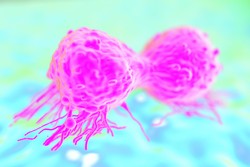Search for the breast cancer stem cell
Significant advances have been made over the years regarding the genetics and molecular pathways implicated in breast cancer, reducing the mortality rate. However, in a large proportion of patients even after 20 years following successful initial therapy, tumours recur at local or distal sites, and are often incurable. Scientists on the EU-funded 3DBREASTCANCER (Modeling breast cancer in 3D cell culture systems and mice) project addressed this by obtaining mechanistic details of tumour therapy, escape and survival of selected cells as well as establishment of recurrent disease. Through the development of new models that faithfully recapitulate the human disease, they set out to improve treatment options in the clinic. Efforts concentrated on mouse model systems that allowed tracing and isolation of primary mouse mammary epithelial cells. Researchers established organotypic 3D cell cultures from these mice at defined tumour progression stages and studied cellular organisation, position and fate at the single cell level in relation to the overall in vivo phenotype. Comparison with normal mammary stem cells helped them identify the origin of tumour-initiating cells, thereby opening avenues in tumour treatment. Special emphasis was given to the mechanisms that maintained the survival of dormant residual tumour cells and to the molecular properties that facilitate tumour recurrence. Scientists studied oncogene dependence in these cells to prevent breast cancer relapse. The 3DBREASTCANCER culture system provided a novel way of studying the tumour-initiating cells in breast cancer and deciphering the mechanisms underlying relapse. Study results will lead to novel targets that partners believe could be exploited in the clinic to improve survival of breast cancer patients.







